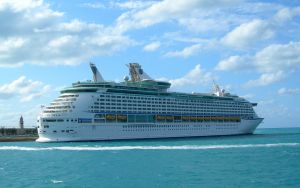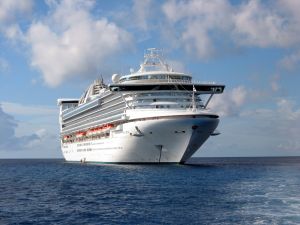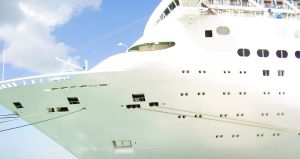Earlier this month an engine room fire erupted on the Carnival Triumph Cruise Ship, leaving the 3,143 passengers and 1,086 crew members on board floating 150 miles off the coast of Mexico for several days.
While no one was injured during the engine room fire, the conditions on the 14-story cruise ship were anything but sanitary. There was no hot water, no air-conditioning, spoiled food and passengers were forced to use plastic “biohazard” bags instead of toilets.
The ship set sail from Galveston, Texas on Thursday Feb. 7th and was scheduled to return from Mexico on Feb. 11th. After the power outage sent the vessel drifting 90 miles off course, three tug boats pulled the ship to a port in Mobile, Alabama.
 Carnival announced that passengers will receive a full refund, a credit for a future cruise equal to the amount paid would be provided, as well as $500 in compensation.
Carnival announced that passengers will receive a full refund, a credit for a future cruise equal to the amount paid would be provided, as well as $500 in compensation.
Now, Carnival Cruise Lines has cancelled many future cruises scheduled for the Triumph and has recognized that the ship had mechanical problems before it left from Galveston on Feb. 7th. In fact, this is not the first time the ship has experienced malfunctions. Recently, the ship’s alternator had technical problems while at sea on another voyage. The National Transportation Safety Board has opened an investigation into the cruise line.
Carnival Corp. shares are already taking a blow. It is estimated that the cancellations and Triumph’s repair costs will result in a $0.08 to $0.10 earnings per share drop in just the first half of the year.
Whatever the problem with this cruise ship, be it a manufacturing defect, a maintenance problem or design problem, Carnival provided the cruise ship and therefore has a duty to supply passengers with a safe vessel. By failing to do so, the cruise line could certainly be held responsible for any damages suffered by passengers.
If you do wish to file a claim against the cruise line, it is important to understand that the rules listed on the back of your Carnival Ticket may require you to file a lawsuit within a limited time frame. In the past, some tickets have indicated that passengers must complete a claim within a short 185 day period. If you are curious about making a claim, check the back of your ticket for any limitations imposed. When it comes to cruise ship injury lawsuits, it is best to take action as soon as possible.
 Florida Personal Injury Lawyers Blog
Florida Personal Injury Lawyers Blog



